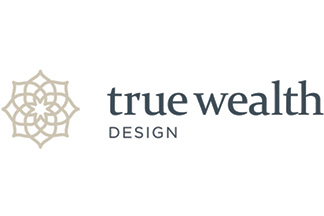Sponsored
Plan Smarter. Live Better.
by Kevin Kroskey, CFP®, MBA
Without proper estate planning, what you hoped to leave for your loved ones could be derailed by unnecessary taxes, legal costs, other complications, and even family disputes.
To get started on crafting or reviewing the financial aspects of your estate plan, you’ll need the following:
Net Worth Statement: Begin by taking a comprehensive inventory of your assets and liabilities. Specify values and ownership for all items such as mortgages, real estate, investments, bank accounts, life insurance policies, and materials personal possessions.
Financial Plan Projections: Estate planning should be done in conjunction with your financial planning. Make sure your financial planning is updated and reflective of your current and future lifestyle and reasonable assumptions are made for life expectancy and growth of your assets. How else can you make a likely determination of whether you are likely to be subject to estate taxes or understand how size the inheritance may impact your beneficiary?
Beneficiary Designations: Clearly outline the current beneficiaries of your assets on your beneficiary accounts – IRA, 401k, life insurance policies, TOD/POD accounts, etc.
Beneficiary Considerations: Think about how you want to distribute assets in terms of dollar amounts, percentages, and whether outright or distributed over time.
Your Advisor & Attorney
If you work with a good financial advisor, they should already have most if not all the above information. Given their relationship with you, they should also understand the values you have. As such, your advisor often will help start or guide the process. They’ll also be in best position to review it over time.
Nothing against estate attorneys, but their work is transactional. You may see an estate attorney to create your documents and only again after many years or even decades, if at all. The relationship you have with your advisor should be much deeper. With the advisor’s knowledge of you, your financial situation, as well as tax and estate planning strategies, they should be an effective bridge between you and the attorney to arrive at the desired destination and legal documents that are aligned with it.
Absent the above, the estate planning process can be confusing and fall short.
In my experience, clients also find it helpful to see how their net worth is likely to change over time to understand the dollars – not just percentages – that will be distributed to beneficiaries. This is often most helpful to see in a visual, flowchart fashion rather than trying to interpret from legalese and financial planning projections. Your financial and estate plans should be integrated.
There’s been several times where this deeper insight has empowered clients to make changes. “My son is going to get that much!” I recall a client saying. They then modified their plan so more went to charities they supported, and their son’s distribution was paid over a period of years rather than outright. Many others have decided to spend more now while living to bring the family members together and make memories. Without this clarity, proactive change is difficult if not impossible.
Benefits of Estate Planning
While estate planning may seem daunting, the benefits are significant:
Asset Protection: Estate planning can help ensure your wealth is preserved for your intended beneficiaries.
Minimize Family Conflicts: By clearly outlining your wishes in legally binding documents, you reduce the likelihood of disagreements among family members regarding asset distribution. Sadly, this is all too common. Doing so may help preserve family harmony.
Tax Efficiency: Proper estate planning can help minimize income or estate taxes, ensuring more wealth is passed on to or retained your heirs.
Peace of Mind: Estate planning provides peace of mind by ensuring your affairs are in order and your legacy is secure. Proactive planning means your wishes will be carried out, and your loved ones will be cared for according to your desires.
Estate planning is about more than just distributing your wealth and assets – it’s about ensuring your legacy lives on through the people and causes you care about most. By planning and implementing the proper safeguards, you gain peace of mind knowing that your wishes will be carried out, and your loved ones will be provided for according to your values and intentions. While it requires effort, the rewards of a thoughtful estate plan are immense: protecting your assets, minimizing conflicts, reducing taxes, and cementing your lasting impact.
Tax & Wealth Management Services | 330.777.0688 | TrueWealthDesign.com
700 Ghent Road, Suite 100, Akron, OH 44333 | Ft. Myers | Naples | Pittsburgh | Youngstown

Sponsored by
True Wealth Design
Kevin Kroskey, CFP®, MBA is the Founder of True Wealth Design, a wealth management firm with deep expertise in retirement, tax, and investment planning, helping successful families and individuals Plan Smarter and Live BetterTM
Opinions and claims expressed above are those of the author and do not necessarily reflect those of ScripType Publishing.

